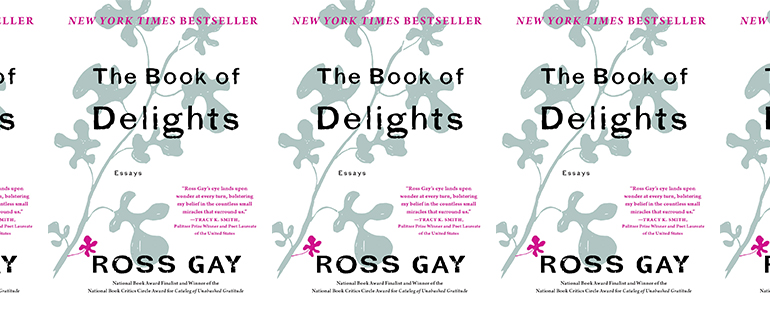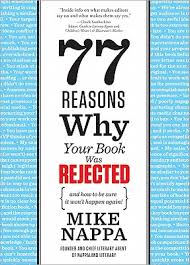The Ethics of Delight

In July 2016, poet Ross Gay “decided that it might feel nice, even useful, to write a daily essay about something delightful.” He gave himself “a handful of rules: write a delight every day for a year; begin and end on my birthday, August 1; draft them quickly; and write them by hand.” This practice of seeking delight became for him a way of cultivating delight; as Gay discovered, “the more you study delight, the more delight there is to study.” I believe it is also an ethical practice: to delight in things is to care about things, and only by caring can we cultivate what is good.
Gay himself might disagree with this claim. Essay 98 of The Book of Delights, which includes 102 of the essays he wrote from August 1, 2016, through August 1, 2017, begins with the statement: “That good and delightful have no requisite correlation ought to be evident.” As an example, Gay points to the work of Jamaica Kincaid, which he says is “good”—meaning fine, beloved, and important—but rarely delightful, except ironically. When I use the word good to describe the results of seeking delight, however, I mean something more like “virtuous” or “beneficial”; in other words, I am talking about an ethical value rather than an aesthetic one.
Ethics, of course, are hardly separable from aesthetics. In Gay’s book, the word ethics appears once, at the end of “Not Only . . .”, a paragraph-long essay that appears at first to be about the beauty of a peacock—“whose long neck was what one might call dark turquoise, which would be a lamentable shorthand, for the iridescence makes it another color entirely, and reminds us how all color is a manifestation of, a mediation on, light”—but turns out to be about sharing. Gay delights not only in the beauty of the peacock, he writes, but also in:
Ingrid’s need to share the photo with me as I was walking toward the buffet at Samira, the Afghan place, almost tugging me by the elbow to do so, using her index finger and thumb to zoom into its luminous neck, smiling and looking at it, smiling and looking at me looking at it, me smiling and looking at her looking at it, which is simply called sharing what we love, what we find beautiful, which is an ethics.
Why this sharing is to Gay an ethics is clearest when one considers its opposite; as he told Bim Adewunmi in a recent episode of This American Life, “it’s a negligence if people don’t take the time to honor the things that they take delight in, but more importantly, that they share the things that they take delight in. And if you don’t do that, there’s a loss there. You have to do it to achieve humanity.”
This view that humanity is a state to be achieved and therefore requires effort brings to mind Aristotle’s view of virtue as grounded in habit. I wish that as an undergraduate I had paid more attention to Aristotle’s ethics, but at the time I considered myself a Platonist for reasons that are now so alien to me that they have vanished nearly entirely from my memory. I remember only my wild excitement reading in the Symposium about Diotima’s ladder of love, on which one ascends from love of particular bodies to love of beauty itself. This idea now seems silly to me; where could beauty possibly reside but in our response to things themselves? And why on Earth should love of some generalized Form of Beauty (whatever that might be) be viewed as superior to the love and care of our actual fellow humans?
I want, like Gay, to delight in the beauty that is here, and he is most likely a better guide than Aristotle in showing how, through the habit of seeking delight, to cultivate virtue. (He is certainly a better guide than Aristotle in that his writing is a far greater pleasure to read.) In “Stacking Delights,” an essay written “about five months into this delight project,” he pledges his fealty to “dailiness” (another, and better, word for “habit”). In the essay, he notes that he has begun “cataloguing delights that I will save for a future date,” which he admits “defeats this book’s purpose of TEMPORAL ALLEGIANCE,” which capital letters he says he wrote on his hand while in the bathroom of Darn Good Soup in Bloomington, Indiana. He writes, “So today I’m recalling the utility, the need, of my own essayettes to emerge from such dailiness, and in that way to be a practice of witnessing one’s delight, of being in and with one’s delight, daily, which actually requires vigilance. It also requires faith that delight will be with you daily, that you needn’t hoard it. No scarcity of delight.”
Witnessing one’s delight requires both vigilance and faith because the world is full of so much that is not delightful. Indeed, Gay’s book of delights does not leave out sorrow or regret; it includes meditations on death (the winter solstice, he writes, “represents to me a kind of deepening, a kind of engagement with an interior, out of which we will emerge, to return to again, to emerge again, ad infinitum. One day we won’t emerge, by which I don’t mean me, I mean we”) and on racism. His entire project, in fact, constitutes resistance against racist oppression, and specifically, the way that popular culture makes “blackness appear to be inextricable from suffering, and suffering from blackness,” which serves to obscure “the efforts, the systems, historical and ongoing, to ruin black people.” To this, Gay responds, “You have been reading a book of delights written by a black person. A book of black delight. Daily as air.”
Also daily as air, Gay writes, is the way that we take care of each other. In “The Sanctity of Trains,” he writes:
The point is that in almost every instance of our lives, our social lives, we are, if we pay attention, in the midst of an almost constant, if subtle, caretaking. Holding open doors. Offering elbows at crosswalks. Letting someone else go first. Helping with the heavy bags. Reaching what’s too high, or what’s been dropped. Pulling someone back to their feet. Stopping at the car wreck, at the struck dog. The alternating merge, also known as the zipper. This caretaking is our default mode and it’s always a lie that convinces us to act or believe otherwise. Always.
We see this caretaking now: in our staying home, wearing masks, and checking on and getting food to neighbors. It is a better option than taking an ironic or cynical view of things or giving up. We could try to protect ourselves at this time from dread, despair, and our own fury; or, like Ross Gay, we could seek delight, and find through it a doorway into engagement in the world, painful as it might be.

